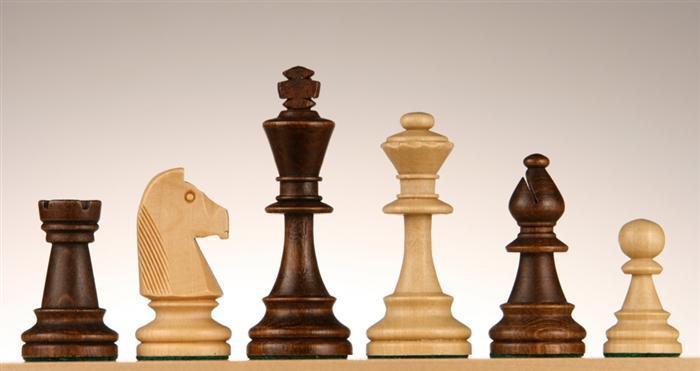Why You Should Play Chess: The Advantages of Taking Part In This Classic Pundit Challenge
Chess is greater than a straightforward video game; it functions as a rigorous mental workout that develops various cognitive skills. Players take part in tactical reasoning and develop analytic capabilities, which can have enduring benefits in daily life. The technique needed for enhancement fosters patience and durability. Yet, real significance of chess exists not just in its intellectual needs however in the connections it cultivates within a neighborhood. Discovering these measurements exposes much concerning why chess remains classic.
Enhancing Cognitive Abilities
Playing chess significantly boosts cognitive abilities, making it an important task for people of all ages. The video game demands critical reasoning and foresight, calling for players to anticipate their challenger's actions while creating a winning method. This psychological workout sharpens focus and focus, vital elements of cognitive feature.
Chess encourages creative thinking, triggering gamers to explore ingenious methods and non-traditional methods to the video game. As they browse the chessboard, people create persistence and resilience, crucial qualities for cognitive growth. On the whole, the multifaceted cognitive advantages of chess make it an improving pursuit, promoting long-lasting psychological dexterity and intellectual involvement.
Enhancing Problem-Solving Talents
Numerous researches have shown that participating in chess can greatly boost problem-solving capacities. The video game calls for gamers to examine complex positions and anticipate the opponent's steps, promoting critical believing abilities. As they navigate different situations, chess players create the ability to examine numerous results and make tactical choices under stress. This procedure boosts their capability to approach real-life troubles with an organized mindset.
In addition, chess promotes the recognition of patterns and the application of rational thinking, abilities that are crucial in efficient problem-solving. Players find out to evaluate threats and rewards, fine-tuning their judgment in uncertain circumstances. The repeated nature of chess play enhances these skills, enabling people to transfer their enhanced analytical capacities to academic and expert contexts. Ultimately, chess acts as a valuable device for any individual seeking to sharpen their logical abilities and improve their general cognitive performance in difficult situations.
Growing Persistence and Self-control
While participating in chess can be an interesting experience, it additionally requires a considerable level of perseverance and technique. Players should learn to very carefully think about each step, weighing potential outcomes and methods. This thoughtful technique fosters a mindset that values long-lasting success over prompt satisfaction. In chess, rash decisions typically cause unfavorable consequences, strengthening the relevance of taking one's time to examine the board and expect a challenger's actions.

Technique is further grown with consistent technique and research. Gamers often dedicate hours to enhancing their skills, researching tactics, and evaluating past games. This dedication to understanding the video game infuses a feeling of responsibility and willpower, crucial characteristics that extend beyond the chessboard. Eventually, the mix of perseverance and self-control not only improves a player's chess capabilities yet additionally adds to individual development, outfitting people with important devices for maneuvering obstacles in various elements her explanation of life.
Cultivating Creativity and Creative Imagination

Planning actions involves not just reasoning yet additionally the ability to expect a challenger's responses, motivating gamers to imagine numerous paths and alternatives. As gamers trying out different tactics, they discover to introduce and adapt, improving their innovative problem-solving abilities.
The video game's complexity invites players to explore non-traditional concepts and techniques, leading to personal styles of play - Chess. This exploration nurtures a feeling of imaginative expression, as each player crafts their very own technique to difficulties on the board. Inevitably, chess becomes a canvas for creativity, enabling individuals to express their unique viewpoints while establishing their creative abilities
Structure Social Connections and Community
Playing chess provides possibilities for individuals to network with tournaments and regional chess clubs. These environments promote links amongst players, creating a sense of recreation center around a common interest. Participating in these tasks not just boosts skills but likewise builds long-term partnerships.
Networking Through Tournaments
When individuals participate in chess events, they frequently locate themselves immersed in a vivid neighborhood of like-minded people. These events provide an excellent system for players to forge links, share methods, and commemorate their enthusiasm for the game. Participating in pleasant competition cultivates sociability, as gamers from diverse histories collaborated to test each various other. Networking opportunities are plentiful, with several participants forming lasting friendships that expand past the chessboard. Furthermore, these events frequently attract enrollers and chess enthusiasts, better boosting the potential for professional connections. As gamers engage in conversations about tactics and experiences, they develop a network that can bring about future cooperations and chances within the chess world and beyond.
Local Chess Clubs

Supplying a Fun and Involving Obstacle
Chess offers an uniquely boosting experience that captivates gamers of any ages, as it incorporates critical thinking with the adventure of competition. This timeless game provides a compelling obstacle, urging people to believe seriously and creatively. Each match unfolds as a fight of wits, where gamers have to anticipate their challenger's relocations while devising their very own techniques.
The intellectual interaction chess provides is matched by its capability to delight. Gamers typically find themselves immersed in the game, misplacing time as they browse complicated placements and tactical dilemmas (Chess). This heightened focus fosters a sense of success, especially when a difficult step brings about triumph
Chess advertises social interaction, enabling gamers to bond over common experiences and difficulties. The game's countless variations guarantee that no two sessions are alike, maintaining participants enthusiastic to refine their skills and methods. This dynamic mix of challenge and satisfaction makes chess an irresistible search.
Often Asked Questions
Can Chess Be Played Online or Just face to face?
Chess can be played both online and face to face. On-line systems use gamers the comfort of contending against opponents worldwide, while in-person video games foster social communication and physical visibility, enriching the total experience.
What Age Is Finest to Begin Understanding Chess?
Specialists suggest that youngsters can begin learning chess as early as age five or 6. At this age, they can understand standard principles, boosting cognitive skills while promoting a love for the game that lasts a lifetime.
Are There Chess Tournaments for Beginners?
Yes, there are chess events especially designed for newbies. These events offer an encouraging setting for beginner players to gain experience, enhance their abilities, and appreciate the affordable spirit of chess without dealing with innovative opponents.
For how long Does It Require To Come To Be Competent at Chess?
Becoming skilled at chess typically calls for constant method over several months to years. Variables such as specific commitment, prior experience, and research of methods substantially affect the time required to reach a qualified degree.
What Resources Are Available for Understanding Chess Methods?
Numerous sources exist for finding out chess methods, including online tutorials, publications by renowned authors, chess applications, and interactive web sites. Numerous players additionally take advantage of signing up with neighborhood clubs or taking part in on-line forums for real-time insights.